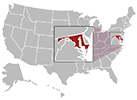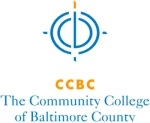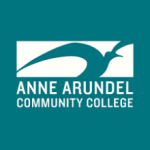
Have you ever wondered how hospitals combat infections so effectively when they perform procedures such as surgery?
You can thank the diligent work of sterile processing technicians for this.
They may be hospital employees that patients rarely, if ever, see but their sole responsibility is to make sure each patient is cared for in the best environment possible.
Sterile processing technicians inspect equipment for damage.
They take apart instruments and machines and make sure they are sterilized, even utilizing an autoclave.
They make sure all newly sterilized equipment is packaged in a way to be readily used when next needed.
In many cases, the sterile processing technician is also responsible for ordering supplies such as surgical gowns and masks.
Steps to Become a Sterile Processing Technician in Maryland
There are only a few steps to becoming a sterile processing technician in Maryland:
- Earn a high school diploma or GED.
- Complete a program specifically designed to teach the skills necessary for sterile processing technicians.
- Start working and apply to take the test given by the Healthcare Sterile Processing Association (HSPA).
- Upon passing the test, work 400 more hours in a sterile processing technician position.
- Send documented hours to the HSPA and receive your Certified Registered Central Service Technician (CRCST) verification.
Licensing Requirements for Sterile Processing Technicians in Maryland
The state of Maryland does not require sterile processing technicians to hold a license, only proof of completing an approved training program.
Some employers, however, may ask employees to hold a license.
In any case, being certified will open up positions that may otherwise be unavailable.
This is true of the highest-paying positions as well as those in more prestigious facilities.
Sterile Processing Technician Programs in Maryland

Community College of Baltimore County
This school offers a Central Service Technician Program that meets the standards required to take the HSPA-given test.
While the required 400 hours for full licensing are not automatically included in the program, students may opt for an externship that requires at least 24 unpaid work hours in a local hospital over 10-20 weeks.
This will give the student the required 400 hours.
The cost of the training program is $1807 and includes 109 class hours.
These can be taken over 4-6 months.
The classes include medical terminology, CPR, and the Central Service Technician class.
Before acceptance, all students must show proof of being up-to-date on all vaccines, including COVID-19, and must pass both a drug and a background check.

Anne Arundel Community College (AACC)
During this 8.4 credit hour course, you will learn to assess the condition of medical and surgical equipment, learn to pack and distribute both sterile and non-sterile medical instruments and learn sterilization and decontamination techniques.
The cost of this program is $2050.
There are a limited number of externships available and students are encouraged to apply for them.
![]()
Frederick Community College
By the time you complete this program, you will be prepared to take the CRCST test.
The program offered at Frederick Community College is an evening class in a hybrid format.
It takes four months to complete.
There are two main classes included in this program.
They are Foundations for Healthcare Careers, which includes such subjects as anatomy and medical terminology, and Sterile Process Technician Fundamentals.
This last one is where you can expect to learn sterilization techniques and the intricacies of maintaining sterility in the medical environment.
Upon entry, you will need to either provide a current Basic CPR card or enroll in a class in CPR given by the school.
The total cost of the program is $1600.
![]()
Carroll Community College
Students can complete this certificate program in four months.
They will take a total of 96 credit hours and pay $374.
Upon completion, students will be prepared to take their CRCST test.
Before acceptance, however, students must take a CPR course.
Classes are divided into two main areas: Medical Knowledge and Sterile Processing
In the medical class, students cover such subjects as medical terminology, cultural competence, documents and medical records, patient rights, healthcare ethics, legal responsibilities, environmental safety, and communication skills.
The sterile processing technician part of the program covers all necessary subjects including microbiology, disinfection, infection control, sterile storage, sterilization processes, and inventory management.
4 Sterile Processing Technician Schools in Maryland
| School Name | Address |
|---|---|
| Community College of Baltimore County | 11101 McCormick Rd # 101, Hunt Valley, MD 21031, United States |
| Anne Arundel Community College (AACC) | 101 College Pkwy, Arnold, MD 21012, United States |
| Frederick Community College | 7932 Opossumtown Pike, Frederick, MD 21701, United States |
| Carroll Community College | 1601 Washington Rd, Westminster, MD 21157, United States |
Salary of Sterile Processing Technicians in Maryland
Maryland offers its sterile processing technicians a pay rate that is slightly above the national average.
The average salary in Maryland is $40,869.
Those at the bottom of the pay scale can expect $32,611 while the highest-paid sterile processing technicians earn $50,796 annually.
Annual Salary Range:Average Salary of Sterile Processing Technicians in Maryland
| City Name | Salary |
|---|---|
| Aberdeen | $39,918 |
| Annapolis | $42,019 |
| Bethlehem | $40,552 |
| Brentwood | $44,120 |
| Centreville | $40,552 |
| Clarksville | $40,631 |
| Parkville | $40,750 |
| Huntingtown | $43,486 |
| Georgetown | $40,949 |
| Ridge | $41,147 |
Regional Salary
| Region | Employed | Avg. Annual Salary | Avg. Hourly Pay | Top 10% Annual Salary | Bottom 10% Annual Salary |
|---|---|---|---|---|---|
| Baltimore-Columbia-Towson, MD | 810 | $50,530 | $24.29 | $62,380 | $36,330 |
| Hagerstown-Martinsburg, MD-WV | 40 | $44,020 | $21.16 | $54,830 | $34,900 |
| Salisbury, MD-DE | 90 | $46,060 | $22.14 | $55,920 | $36,620 |
* Employment conditions in your area may vary.
Frequently Asked Questions
Do I need a license to become a sterile processing technician in Maryland?
While you do not need a license to be a sterile processing technician in Maryland, having one can open up the door to more positions and a higher salary.
Do sterile processing technicians in Maryland need to have science degrees?
While sterile processing technicians do need to have an understanding of microbiology and the concept of human disease and how to prevent it, that is the extent of the scientific knowledge needed.
All this will be taught in the training program you choose.
Is sterile processing technician a stable profession in Maryland?
There will always be a need for medical services, and therefore sterile processing.
As the population as a whole ages, there will be an even greater need.
This makes sterile processing technicians a growing necessity.
This page is also available in Spanish.





